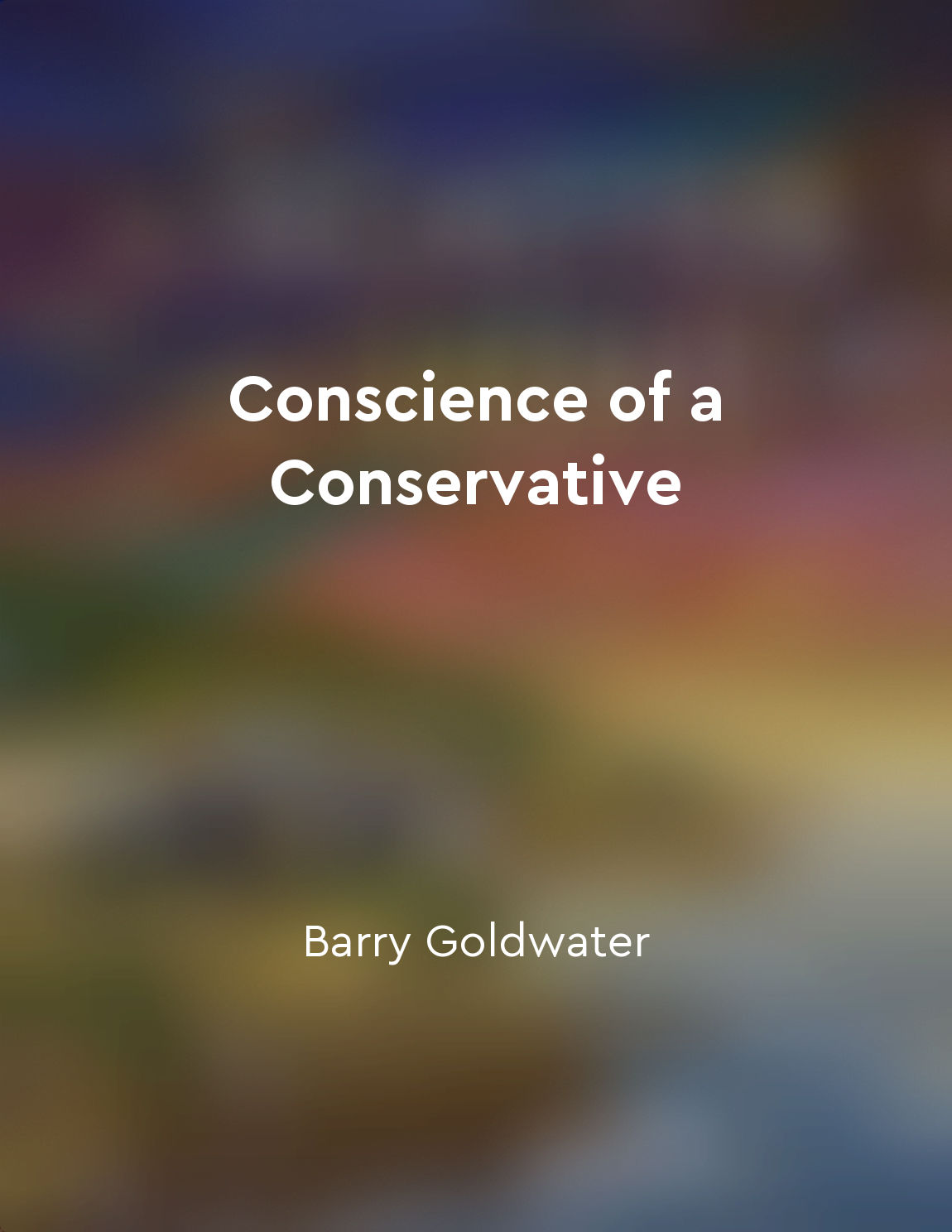Virtuous conduct is guided by a sense of duty from "summary" of The Theory of Moral Sentiments - Adam Smith by Adam Smith
Virtuous conduct is guided by a sense of duty. This principle, deeply ingrained in human nature, serves as the foundation for moral behavior. When individuals act in accordance with their sense of duty, they are motivated by a desire to uphold standards of right and wrong. This sense of duty compels them to consider not only their own interests but also the welfare of others. It is a moral compass that directs their actions towards the common good. Duty is not merely a matter of obligation; it is also a reflection of one's character. A virtuous individual is one who acts out of a sense of duty, not out of self-interest or personal gain. Such individuals demonstrate integrity, honesty, and fairness in their interactions with others. They uphold principles of justice and equity, even when faced with difficult choices or challenging circumstances. In the realm of ethics, duty plays a central role in shaping moral conduct. It serves as a moral imperative, guiding individuals towards actions that are in line with their values and beliefs. Duty compels individuals to do what is right, even when it is not easy or convenient. It requires them to prioritize the well-being of others over their own self-interest. The concept of duty is closely tied to the idea of virtue. Virtue, according to Smith, consists of qualities that are beneficial to society and contribute to the overall happiness and well-being of individuals. By acting in accordance with their sense of duty, individuals cultivate virtues such as benevolence, compassion, and generosity. These virtues form the basis of a moral society, where individuals are motivated by a desire to do good and promote the welfare of others.- The concept of duty is essential to the theory of moral sentiments. It serves as a guiding principle for virtuous conduct, leading individuals towards actions that are in line with their values and beliefs. By upholding their sense of duty, individuals demonstrate integrity, honesty, and fairness in their interactions with others. Duty is not just a moral obligation; it is a reflection of one's character and a commitment to the common good.
Similar Posts
Strengthening character through adversity
In the face of adversity, our character is put to the test. It is through challenges and difficulties that we have the opportun...
Reflection can bring insights
Reflection is a powerful tool that can help us gain deeper insights into ourselves and the world around us. When we take the ti...

The Torah is divided into five books
The Torah, also known as the Five Books of Moses, is divided into five individual books: Genesis, Exodus, Leviticus, Numbers, a...
Stoicism teaches us to be mindful of our actions and thoughts
Stoicism emphasizes the importance of being conscious and deliberate in our actions and thoughts. This philosophy encourages in...

Cooperation between government and private sector is beneficial
The relationship between government and the private sector is a crucial one. Both entities have distinct roles to play in socie...
The Five Aggregates are the components of personal identity
The Five Aggregates play a crucial role in understanding personal identity in Buddhism. These aggregates are form, feeling, per...
Set clear goals
In order to be effective in achieving our goals, it is crucial to set clear goals. Without a clear vision of what we want to ac...
Practicing selfdiscipline
Self-discipline is the key to achieving success in life. It requires a strong will and determination to resist temptations and ...
Rational beings are obligated to act in accordance with universal moral laws
In considering the concept of moral obligation, we must first understand that rational beings possess the capacity for reason, ...

The power of rituals and routines in shaping behavior and attitudes
Rituals and routines have a powerful influence on our behavior and attitudes. They act as a sort of scaffolding for our lives, ...


